Environmental awareness Math Worksheets for Ages 5-8
7 filtered results
-
From - To
Explore our "Environmental Awareness Math Worksheets for Ages 5-8" designed to teach young minds the importance of ecology through engaging activities. These fun, interactive worksheets blend essential math skills with environmental education, welcoming children into the world of sustainability. From counting animals to measuring distances for recycling, each exercise encourages learners to think critically about their impact on the planet. Perfect for teachers and parents striving to nurture eco-consciousness alongside foundational math skills, these worksheets provide a creative way to inspire the next generation of environmental stewards. Join us in making learning both educational and environmentally friendly!
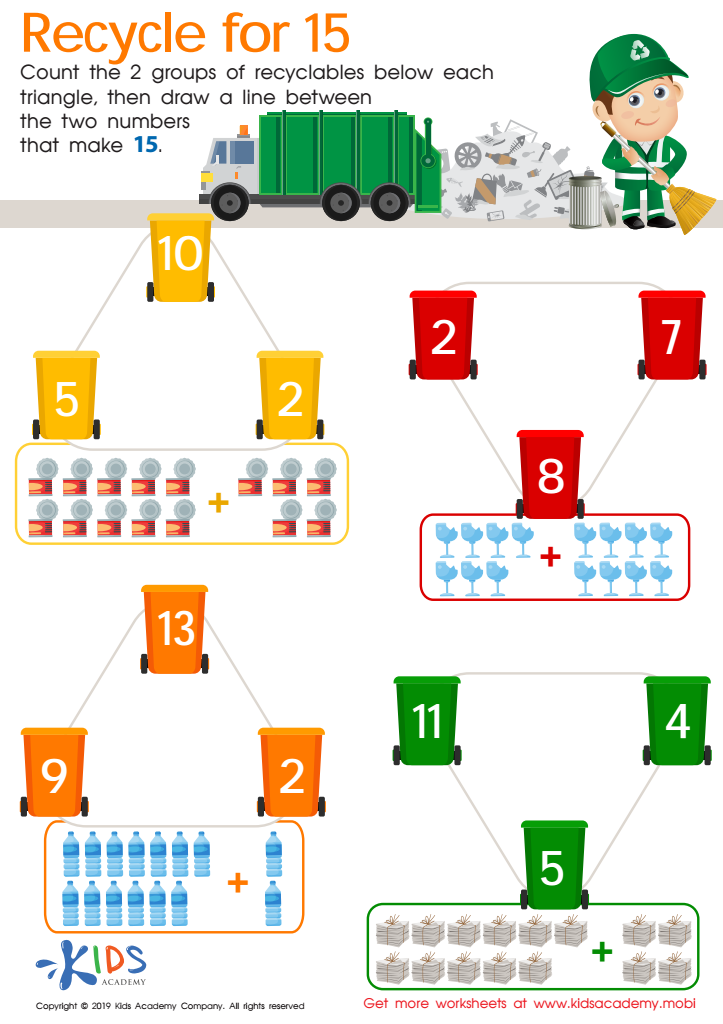

Recycle for 15 Worksheet
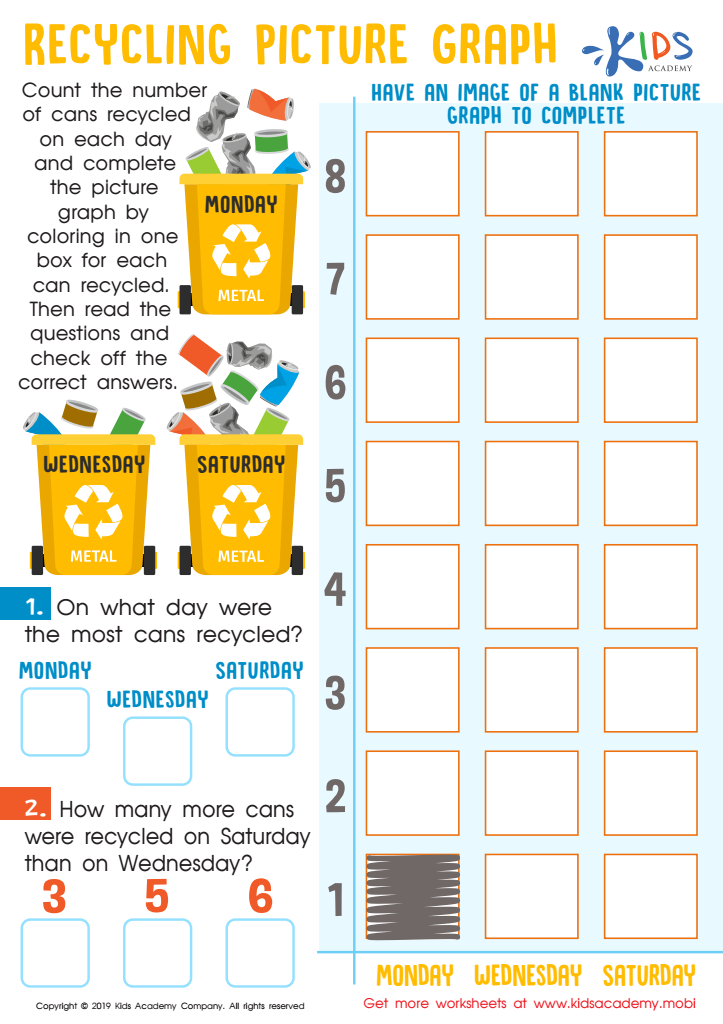

Recycling Picture Graph Worksheet
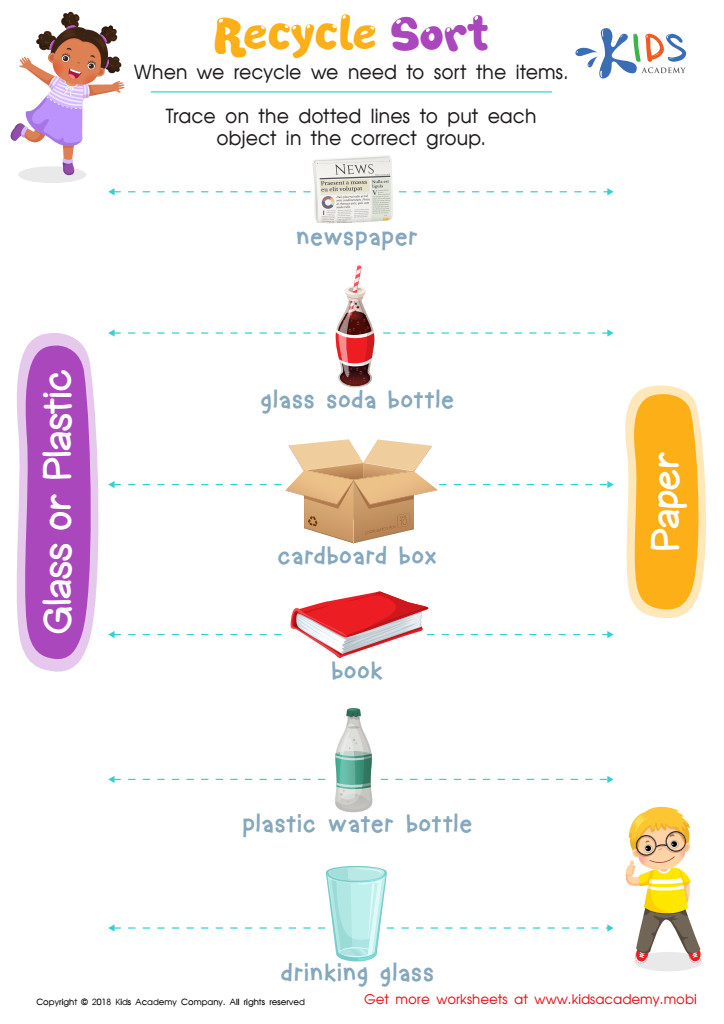

Recycle Sort Worksheet
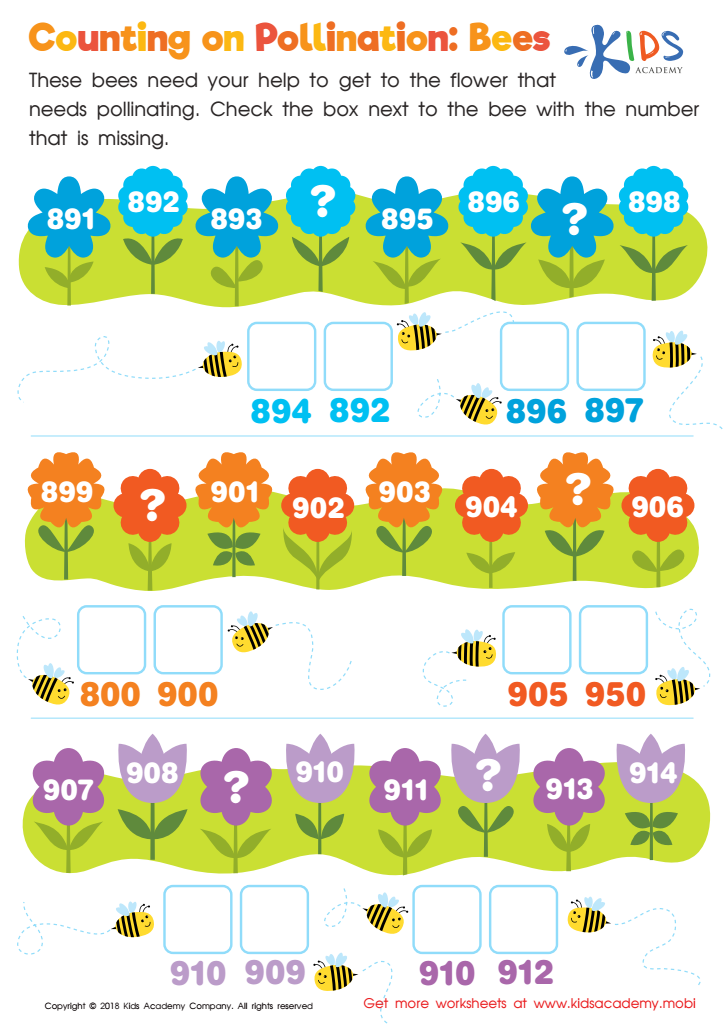

Counting on Pollination: Bees Worksheet
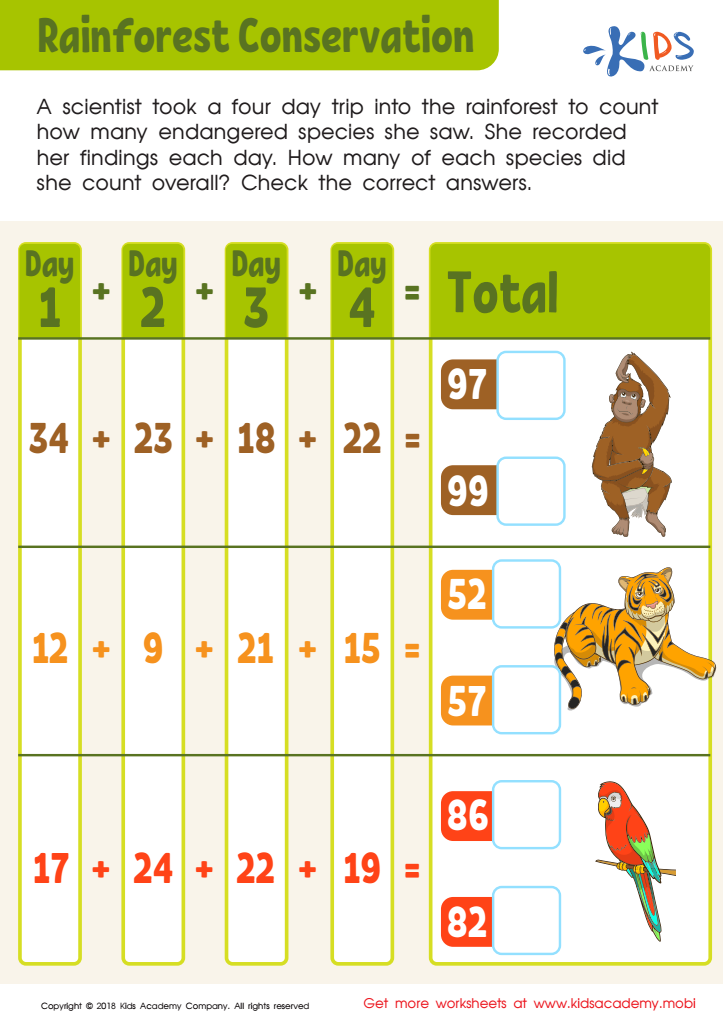

Rainforest Conservation Worksheet
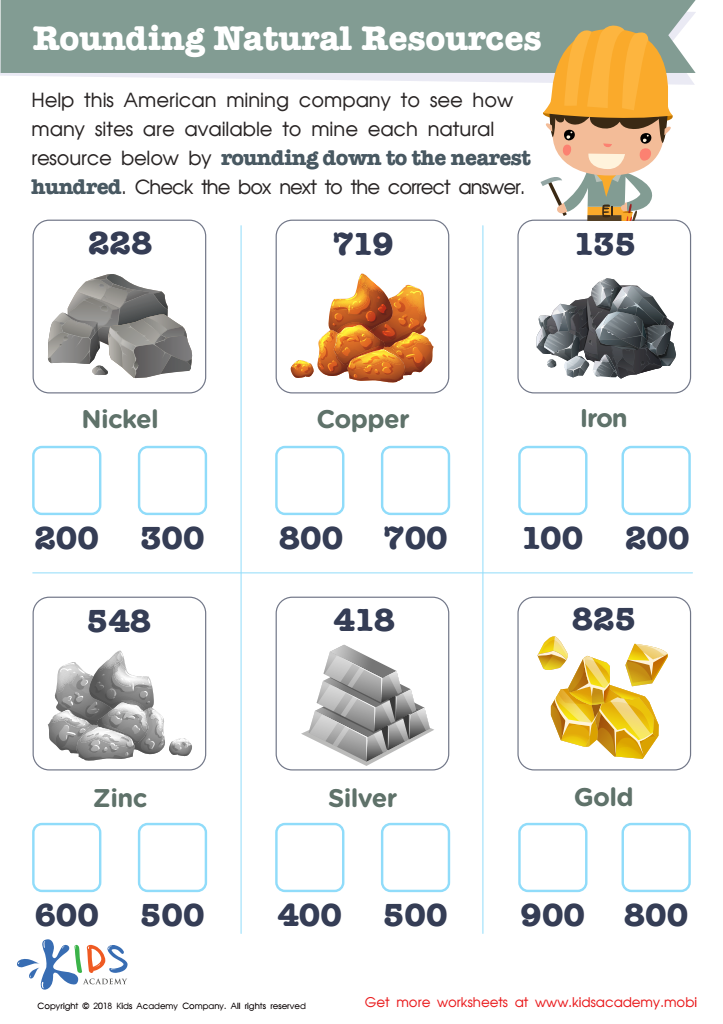

Rounding Natural Resources Worksheet
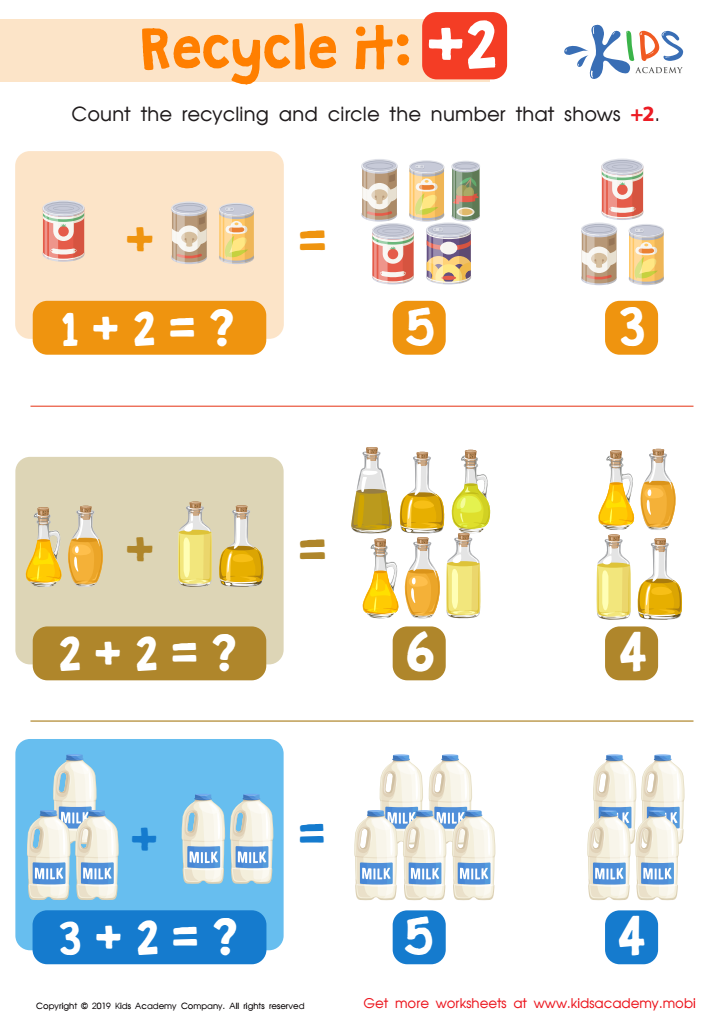

Recycle It: +2 Worksheet
Environmental awareness is increasingly vital in today's world, and integrating it into Math for ages 5-8 offers numerous benefits for children, parents, and teachers. At these formative ages, children are naturally curious about their surroundings, making it the perfect time to instill a sense of environmental responsibility.
Teaching math through an environmental lens allows children to grasp mathematical concepts while also understanding ecology. For instance, using real-world data—like the number of trees in a local park—as a basis for counting, addition, or graphing teaches students how math relates to real-life scenarios. This approach fosters critical thinking and problem-solving skills.
Moreover, instilling environmental awareness promotes values of stewardship and sustainability from an early age. When children learn about the impact of pollution or the importance of recycling while working on math problems, they connect numbers with meaningful actions.
Parents and teachers play crucial roles in shaping students’ perceptions. By engaging in environmentally focused math, they can nurture children who not only excel academically but also contribute to a healthier planet. Ultimately, equipping young minds with math skills grounded in environmental concepts lays the foundation for informed, responsible future citizens.

 Assign to My Students
Assign to My Students





















